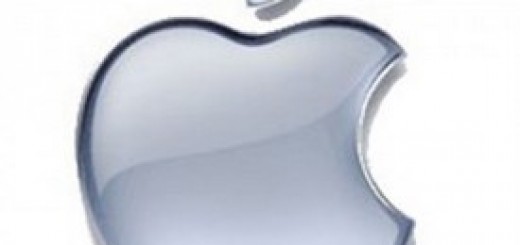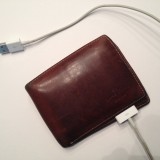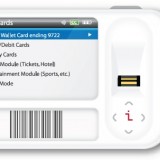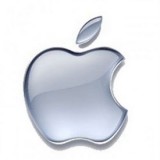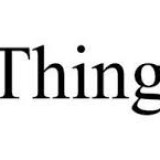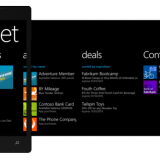iCache – the iWallet that failed?
What is (was?) the iCache?
Basically, the iCache is a small device similar to a small smartphone that contains the data from every credit, debit, loyalty (for example, your supermarket discount card) or gift card that you own. The gadget’s design is meant to appeal to young and technologically savvy consumers as well as those seeking a safe and secure way to carry out transactions. It’s a digital wallet secured by the owner’s fingerprint.
The iCache could not only alter day-to-day shopping, it could also change the way people travel. Instead of carrying a wallet full of credit and debit cards while you travel domestically or internationally, with the iCache travel gadget, you could streamline all your cards into one device.
1 – before you can use the device, you store all the data related to your cards on the iCache through a USB connection with your computer.
2- When you want to buy something with eg your VISA card, you select the card on the screen, and the device will create temporarily a copy of your card data on a magnetic card stored in the iCache. For loyalty cards and others that only use barcode readers, the barcode of the card will be shown on the spot.
Nice? Oh well, as a travel gadget it certainly is nice not to carry 10 cards with you.
The history:
2007: Jon Ramaci founds iCache, the company that will make the Geode digital wallet.
Late 2010: After a period of talks with Microsoft, iCache partners with Apple.
March 2012: iCache launches the Geode Kickstarter project, sparking both orders and an excited discussion between backers and Ramaci.
April 2012: iCache raises more than seven times its Kickstarter goal of $50,000, attracting $352,918 in pledges from 1,784 backers. That’s in addition to significant money Ramaci and investors had already put into the project.
May: First production batch made in Kentucky. Kickstarter backers are already asking when their Geodes will ship.
June: Ramaci officially launches the Geode at iCache-sponsored San Francisco-area music festival BFD. Kickstarter backers’ anxiety and questions intensify. Ramaci tells them a manufacturing glitch — “a slight imperfection with the molds for the liners” — has delayed deliveries.
July: Geodes start shipping, through Amazon, and Kickstarter backers begin receiving them. The immediate reaction is mixed, with complaints ranging from the universal card to the iPhone app. iCache responds with fixes, again with mixed results. Meanwhile, iCache sues Massachusetts consultants it alleges fraudulently steered iCache toward a manufacturer from which it would receive a kickback.
August: Some backers report successful use of their Geodes, but many continue to struggle with a variety of glitches and complain about the company’s response. Former iCache president Jonathan Cool sues iCache and Ramaci for allegedly not paying him salary and stock owed. The company posts its last update for Kickstarter backers on Aug. 29.
September: Apple announces iPhone 5. Ramaci acknowledges the need for a new Geode and steps down as CEO to lead that effort. Geode customers are offered the option to switch to the iPhone 5 version, while iPhone 4 Geodes and new Geocards are still being sent.
October: The talk on the Kickstarter comment board is now about obtaining refunds or unloading shipped Geodes. Massachusetts consultants James DiBurro Jr. and Round Rock Consulting sue iCache and Ramaci in federal court for breach of contract and fraud among other counts.
November: Ramaci and several of his fellow executives leave the company.
December: iCache is cited as an example of a Kickstarter project gone awry in The Boston Globe.
January 2013: Customer complaints continue. Facebook group “Robbed by iCache” set up. iCache’s lawyer in the Massachusetts consultant case withdraws, and shortly thereafter iCache’s new lawyer signifies he won’t pursue the litigation. Status of that dispute is unclear.
February: iCache customer support section of website no longer works. U.S. District Judge in South Carolina awards Jonathan Cool $1.23 million, 1.2 million shares of iCache stock and his legal costs in a default judgment against iCache.
March: Entire iCache website down. Future of company unclear.
2024: smartphones now incorporate the original idea of the iCache: they allow storing your credit and loyalty cards in wallet apps. Again a function taken over by smartphone technology.


